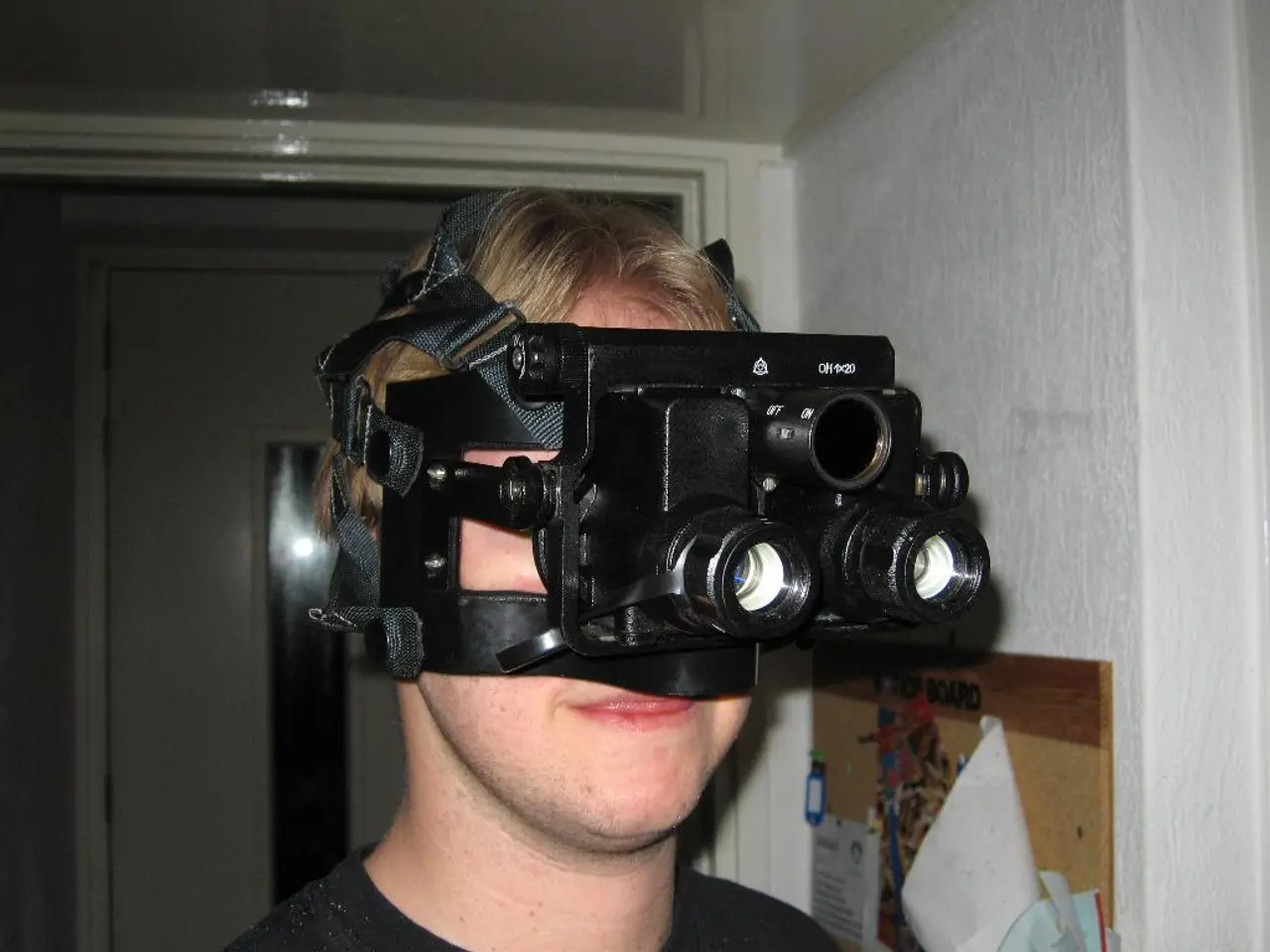Exploring the Innovative Realm of Virtual Reality Treatment for Combating Cognitive Deterioration
Virtual Reality (VR) therapy is making waves in the field of cognitive impairment treatment, showing promising benefits for individuals with mild cognitive impairment (MCI).
Cognitive decline, a noticeable and measurable reduction in cognitive abilities, including memory, attention, and decision-making skills, affects many individuals as they age. Current research findings suggest that VR therapy could be a valuable tool in combating this issue.
A systematic review found that 7 out of 9 studies involving VR-based multisensory cognitive training in people with MCI showed significant improvements in global cognitive function. Notably, no eligible studies focused exclusively on Alzheimer's disease within this review. Some studies reported improvements in executive functions such as attention and task switching, though results were mixed across studies. Psychological outcomes including reductions in depression and enhancements in quality of life were also noted.
Functional abilities showed improvement in at least one study, and VR sessions were reported to reduce discomfort and were well-accepted by participants. Another recent clinical study used a VR-based Stroop task as a sensitive behavioral marker to detect MCI, demonstrating VR's utility not only in therapy but also early diagnosis and monitoring of cognitive decline.
While direct evidence for VR therapy in dementia beyond MCI is limited and more research is needed, VR's multisensory and immersive nature offers a scalable and engaging approach that could complement multi-domain interventions targeting cognitive health.
VR therapy sessions aim to strengthen cognitive abilities, potentially slowing down or even reversing aspects of cognitive decline. Common types of VR interventions for cognitive decline include memory enhancement games, simulations improving attention and focus, and scenarios enhancing problem-solving and decision-making skills.
Virtual Reality therapy is a groundbreaking approach for cognitive impairment treatment. It allows for safe replication of real-life scenarios in a controlled environment, providing valuable practical training and assessment opportunities. The immersive nature of VR ensures high levels of engagement, crucial for therapeutic interventions.
Moreover, VR therapy provides personalized and adaptive experiences, catering to the specific needs and progression of each individual. VR therapy for cognitive decline uses simulated environments tailored to mimic real-life situations or create unique scenarios targeting specific cognitive functions.
Real-life examples, such as an older adult with early-stage Alzheimer's showing significant improvement in memory and spatial orientation, underscore the transformative impact of VR therapy. A study in "Gerontechnology" found that VR not only enhanced cognitive function in older adults but also improved their emotional well-being.
However, the accessibility of VR technology and the need for more extensive and long-term studies are current limitations and challenges in the field of VR therapy. Age, genetic predispositions, lifestyle choices, and environmental factors can contribute to cognitive decline, and further research is needed to understand how VR therapy can best be integrated into comprehensive care plans.
In summary, VR therapy is emerging as a promising tool to improve cognitive and psychological outcomes in MCI, with positive tolerability and potential for early detection. However, larger controlled trials and studies focused on later-stage dementia are needed to validate and expand these findings.
- As attention and focus are crucial for cognitive function, VR therapy sessions often incorporate simulations to strengthen these abilities.
- The immersive nature of VR in therapy sessions ensures high levels of engagement, which is crucial for therapeutic interventions.
- Virtual Reality (VR) therapy is showing promising benefits for individuals with mild cognitive impairment (MCI), potentially slowing down or even reversing aspects of cognitive decline.
- VR therapy provides personalized and adaptive experiences, catering to the specific needs and progression of each individual.
- While VR therapy sessions aim to strengthen cognitive abilities, mental health outcomes, such as reductions in depression and enhancements in quality of life, were also noted.
- Current research findings suggest that VR therapy could be a valuable tool in combating cognitive decline associated with aging.
- Psychological therapies and treatments, particularly in relation to mental health, could be enhanced through immersive VR experiences, benefiting both emotional well-being and cognitive function.
- Science and health-and-wellness communities are increasingly recognizing the potential of VR therapy in addressing cognitive impairments and mental health issues, particularly in the elderly population.




